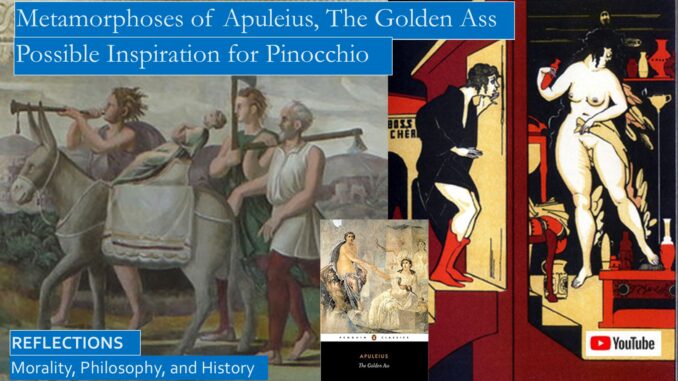
What can we learn from reflecting on Metamorphosis, or Golden Ass of Apuleius?
In this ancient Latin novel, Lucius attempts, through magic, to turn himself into a bird, but instead turns himself into a donkey. In the final chapter, with the help of the Egyptian goddess Isis, he returns to his human form.
What can we learn about the ancient world from this novel?
Was this the inspiration for the modern story about Pinocchio, the puppet who also was turned into a donkey?
Script for this video, with Amazon book links: https://www.slideshare.net/BruceStrom1/metamorphosis-of-apuleius-the-golden-ass-possible-inspiration-for-pinocchio
YouTube video: https://amzn.to/3Cb2OTJ
METAMORPHOSIS, OR GOLDEN ASS
The wildly popular and only Latin novel that has survived intact was Metamorphosis, more commonly known as the Golden Ass, was written by Apuleius, born in the year 125 AD in Roman North Africa, not far from the future birthplace of St Augustine. The Golden Ass was popular both in the ancient world and in the Middle Ages, it was quite risqué, quite ribald, with many stories within stories, with moral lessons sprinkled in here and there. We are reflecting on this book because of its influence on much later literature, including many ancient works, and later the plays of Shakespeare, and the original Pinocchio, and perhaps the famous short story by Kafka, also named Metamorphosis, where an unfortunate young man wakes up one night to discover he has mysteriously been transformed into a giant beetle.
The basic plot of the book is our young man Lucius spies a witch who has learned to transform herself into various types of birds. When she is gone, he tries out the same potions, but by grabbing the wrong box, he is turned into a donkey, not a talking donkey, but a braying donkey who has kept his human intelligence and human tastes. Though there are scattered penitential regrets, mostly our donkey is able to spy on the crimes and indiscretions of both robbers and cheating lovers to provide the reader with many titillating tales. In the final chapter, the goddess Isis appears to him in a dream, telling him what he needs to do to be transformed back into a human.
The Golden Ass also gives us a peek into ordinary lives in the ancient world. Magic was just as real to many in the ancient world as UFOs are to many in the modern world. Also, life was grinding and relentlessly cruel to those who toiled on farms and as craftsmen, and both travelers and villagers feared the bandits and brigands who infested the countryside.
St Augustine in his book, the City of God, mentions both the role of magic and the Golden Ass. He said that when he traveled in Italy he heard of magical metamorphoses in one district in that country, saying: “Landladies conversant with these evil arts were in the habit of giving drugs and cheese to travelers” so “their guests were turned into pack animals on the spot and were used to carry commodities of all kinds. Afterwards, when they had finished their jobs, they were restored to their original selves, yet their minds did not become animal but were kept rational and human,” just as in the Golden Ass by Apuleius. Surprising to us, St Augustine then simply states that “this may be either fact or fiction.”
St Augustine states that “stories of this kind are either untrue or at least so extraordinary that we’re justified in doubting them.” Although “God can do anything he pleases,” demons can only do that which “God permits, and God’s judgements are often inscrutable, but never unjust.”
“Demons, of course, do not create real entities, and if they do indeed perform deeds of metamorphosis, they only appear to transform beings created by the true God, to make them seem to be what they are not.”[1]
I am quoting this to emphasize that many in the ancient world thought magic was real.
(The text in italics is not included in the YouTube video.)
The protagonist of the novel is Lucius, and the novel begins with a curious story told to him by a fellow traveler who said he met up with Socrates after his trial and supposed execution. We learn from both Plato and Xenophon that although Socrates was offered the chance to escape his poorly guarded jail cell to go into exile, which was what he was expected to do, he instead remained to drink the hemlock leading to his death. But in this alternate story Socrates did escape, and some fellow name Aristomenes, which perhaps is a wordplay on Aristotle, met him in the public bath and he helped him out, sharing lodging. This Socrates did not behave as we would expect him to behave.
Two witches violent broke down the door to their room, and one witch drew her sword into the neck of Socrates, reached down and drew out his heart, but patched up the wound with a magical sponge. Aristomenes recalled: “As soon as the witches left, the doors reverted undamaged to their previous positions, the hinges settled back into their sockets, the bars were restored to the doorposts, the bolts jumped back into the locks. I remained still stretches out on the ground, lifeless and naked, shivering and soaked in urine,” the urine remaining as the only reminder of what happened, since the witches had “voided their bladders over his face.”
The next day they leave on a hike, but when Socrates stoops down to a stream to quench his thirst, the sponge tumbles out and he instantly dies. What is the moral to this story? Perhaps the moral is simply that offered by Lucius, that we “experience many strange, almost impossible happenings which lose their credibility when recounted to another who is unaware of them.” Simply put, stuff happens, then we die.[2]
Lucius finds lodging at the house of the miserly Milos, who is so fearful of robbers that he refuses to buy chairs and tableware. He is warned by his aunt that Milos is married to Pamphile, a seducing dangerous witch. But Lucius insists on returning to his lodging, thinking to himself: “Make a beeline for his maidservant Photis. She is attractive, she has amusing ways, and she is quite sharp. Last night when you retired to sleep, she genially escorted you to your room, fussed over you, tucked you in quite affectionately, kissed your forehead, and showed by her face her unwillingness to leave. In fact, she kept halting and looking back.”
In the Eastern tradition, in the story of Jesus speaking to the Samaritan woman at the well, when He asks her for a drink, He tells her that He can give her a drink of living water, the Samaritan woman at the well is named St Photine, which in Greek means the luminous one. In the story, Jesus asks her about her husband, she says she doesn’t have a husband, and Jesus responds, though this is the first time he has met her, that she has had four husbands, but the man who she is living with is not her husband. Was Apuleius aware of this reference?
When our traveler arrives back at his lodging, he finds the maidservant stirring dinner in a pot. Lucius remarks, “My dear Photis, how lusciously and attractively you wiggle that wee pot, and your bottom with it! How lucky a fellow would be if you let him stick his finger in, he’d be on top of the world!”
Photis replies, “Keep clear, poor boy, keep clear as far as possible from this stove of mine. If once my little flame shoots out and as much as sears you, you will be all ablaze inside, and I will be the only one who can put your fire out. The spices I stir in are sweet. I’m an expert at pleasurably shaking a bed as a pot.”
Gentle reader, we learn that perhaps this early Latin novel has survived because it is also a romance novel, and this romance does last for a dozen risqué and ribald pages, but Lucius’ curiosity about witchcraft ends it abruptly.[3] Indeed, those in the ancient world knows how dangerous magic could be, the Old Testament has many prohibitions against magic.
We read in Exodus: “You shall not permit a sorceress to live.”[4]
In Leviticus, “You shall not practice augury or witchcraft,”[5]
and after the long string of awful Thou shalt not uncover the nakedness of distant and near relatives:
“A man or a woman who is a medium or a wizard shall be put to death; they shall be stoned with stones; their blood shall be upon them.”[6]
There shall not be found among you anyone who burns his son or his daughter as an offering, anyone who practices divination, a soothsayer, or an augur, or a sorcerer, or a charmer, or a medium, or a wizard, or a necromancer.[7]
LUCIUS GROWS LONG EARS, HOOVES, AND A TAIL
The Golden Ass could be associating magic with illicit intimacy, or it could simply be telling us that both dominated the ancient imagination. But Lucius does not fear magic, he begs Photis to allow him to spy on her mistress as she changes her form, and Photis relents, as they spy on her through some cracks in the walls.
The witch “Pamphile first divested herself of all her clothing. She then opened a small casket and took from it several small boxes. She removed the lid from one box, and extracted the ointment from it,” “smearing it all over herself from the tips of her toes to the crown of her head. She next held a long and private conversation with the lamp and proceeded to flap her arms and legs with a trembling motion. As she gently moved them up and down, soft feathers began to sprout, and sturdy wings began to grow. Her nose became curved and hard, and her nails became talons. In this way, Pamphile became an owl; she uttered a plaintive squawk as she tried out her new identity” as she flew out the window.”
Lucius views this, finds that it is not that difficult, so he then begs Photis to borrow the magic potion so he, too, can fly high above the ground as a bird. So, she takes a box out of the small casket, and Lucius likewise strips and rubs the ointment all over his body. Lucius remembers, “I then flapped my arms up and down, imitating the movements of a bird. But no down and no sign of feathers appeared. Instead, the hair on my body was becoming coarse bristles, and my tender skin was hardening into hide. There were no longer five fingers at the extremities of my hands, for each was compressed into one hoof. From the base of my spine protruded an enormous tail. My face became mishappen, my mouth widened, my nostrils flared open, my lips became pendulous, and my ears huge and gristly. The sole consolation I could see in this wretched transformation was the swelling of my penis, though now I could not embrace Photis.”
Lucius was distraught, but he could only pout and bray, he could not talk. Photis was distraught, Photis had picked the wrong box! But no fear, all Lucius needed to do to return to human form was to eat some roses, so Photis led him to the stable, she would venture outside the next morning to find her little donkey some roses to chew. But in the middle of the night, they were interrupted by: ROBBERS! Robbers who discovered that Milo had so much loot that they needed to also steal Milo’s donkeys and horse to help carry it off.[8]
One overarching theme is how randomly cruel life can be. Our little donkey Lucius is terrified when his fellow ass collapses under the weight of his load, and is unable to get up. Our author tells us, “the robbers drew a sword, cut his hamstrings right through, dragged him a little way off the road, and hurled him still breathing over the top of the cliff headlong into the nearest valley below. As I reflected on the fate of my wretched comrade-in-arms, I decided to renounce guile and deceit, and to show myself a good ass to my masters,” especially since he overheard that they were close to their hideout.
We are skipping over several stories within stories, the most notable is the story about Psyche and Cupid. The robbers had kidnapped a bride at a wedding they interrupted, killing the groom, but in this tale the robbers never rape their victims, which they probably would have done in real life. But once they reach their camp, after a meal and a sleep the robbers go out to pillage some villages, leaving behind the hag who keeps their camp, and the donkey and the girl. The hag, to distract her, tells her the long story of Psyche and Cupid, which takes up the middle of novel, this is the story that CS Lewis retells in his book, Till We Have Faces.[9]
SUFFERINGS OF LUCIUS THE DONKEY
The robbers return, load up our poor donkey with loot, and drive him so hard he trips over rocks, causing him to injure his legs and hoof. The robbers show no patience, asking, “How long are we to waste our time feeding this broken-down ass now that he is lame as well?”
This frightens him, and after they arrive in camp and the robbers depart, our donkey tries to make a run for it, but the hag pulls on his halter trying to hold him back. The commotion alerts the pretty hostage, she jumps on his back and they take off. As they flee, she strokes him and promises, saying: “What dishes I will serve up to you! First I shall lovingly comb this mane of yours, and adorn it with my childhood trinkets. After curling the hair on your brow, I shall part it neatly. Your tail, which is all matted up and spiky because no one has washed it, I shall spruce up and make it glossy.” This encourages the donkey to gallop, but they are caught by the robbers, and when they return, they find the hag hanging from a tree.
The robbers decide they cannot trust them, one robber exclaims: “The ass, which is always bone-idle, eats us out of house and home, and now pretends to be lame, took flight with the girl. You should accordingly decide to slit his throat tomorrow, and sew the girl naked inside his belly, since he would rather have her than us.”[10]
ROBBERS ELECT A NEW LEADER, WHO BETRAYS THEM
The gang had lost several members in their raids, and they needed to build up their numbers, so they welcomed a new member into their gang. He impressed the gang when he cut open his jacket lining to contribute several thousand gold coins to the gang’s treasury. He claimed to be Haemus the Thracian, leader of the gang that once terrorized all of Macedonia. He talked a good game, and they elected him as their leader.
Our new leader was not fond of killing the girl. He argued: “Robbers with good sense should consider their own profit above all else, even revenge.” “If you sew the girl in the ass and finish her off, you will merely vent your annoyance on her, and gain no profit. My alternative proposal is that she be taken to some town and sold there; a young girl like this one will fetch quite a high price. I myself have a long acquaintance with some brothel-keepers, and I imagine that one will be willing to pay many talents for this girl to be employed in a brothel, a suitable price for such high birth.”
This is a recurring theme in ancient literature, how women are often kidnapped or are enslaved as concubines after their side loses a battle, and how they are compelled to make the best of their situation. For example, in Homer’s Iliad, the Greeks and Trojans battle over Helen, who is abducted from Greece by Prince Paris of Troy. The Iliad itself is about a squabble between Greek kings over captured concubines. We even see this in the Odyssey, where Odysseus is compelled to be the sexual partner of several goddesses and witches.
YOUTUBE
After some consideration, to the relief of the girl and our donkey, the robbers “loosed the girl from her bonds. “As soon as she had set eyes on that young man, and heard mention of the brothel and its keeper, Charite began to perk up and to smile all over her face.” Our donkey did not approve, “’My natural reaction was to criticize the whole sex when I observed this girl, who had pretended to be in love with her young suitor and to long for a chaste marriage, welcomed the prospect of a foul and filthy brothel.’ At that moment, the whole female sex and its morals lay perilously poised on the judgement of an ass.”
The dinner wine that night was drugged, and when all the robbers were all fast asleep, this new leader bound them up in chains, and in the morning, he put the girl on the donkey’s back and returned to the girl’s hometown. Our donkey Lucius remembers, “What a parade was on view, men and women, young and old, and a truly unforgettable sight:” the former bride, “riding in triumph on an ass!” It was now the robbers’ turn to be run through with the sword and then rolled off the cliff.
But Lucius was still a donkey, and he was put to work grinding grain, and his keepers abused him, and the stallions kicked him. Nobody is kind to an ass.[11]
FINAL SUFFERINGS OF LUCIUS, OUR DONKEY
Lucius was once again sold to a catamite priest, one of the “meanest dregs of society, those people who parade through the streets of towns banging cymbals, shaking castanets, and carrying round the Syrian goddess soliciting alms.” The auctioneer even said, “This is no ass you see; he’s gelded, compliant in any service. He doesn’t bite or lash out. You could believe that in this ass’ skin there lurks an unassuming human being.” [12]
They plundered many towns, were run out of several others, and after someone falsely accused them of stealing our poor ass Lucius, they decided to kill him, until they remembered that he was useful to carry their statute and other baggage. But when they resolved to kill our Lucius, he wildly snapped the rope holding him, and barged into the living room of the master who was host to these evil priests, securing him in a barn out of the reach of the priests. When his life was again in danger, he barged into the bedrooms, where they locked him up. Lucius became docile, and slept in a real bad, ass though he was, for the first time in many months. When awakened, he was perfectly docile, and so he and the priests continued their journey.
During their journeys, our donkey overheard a curious story of a promiscuous wife whose poor husband came home unexpected. This clever woman “freed the lover from her close embraces, and craftily hid him in an empty corn-jar half-buried in a corner. Then she opened the door, greeting her husband sharply, ‘Why are you not attending to your usual work to ensure our livelihood,” “while I work desperately day and night?”
The husband then says he has found a buyer for their forever empty large corn-jar who will pay six denarii, but then she announces that she has found someone to buy it for seven denarii, and what is more, the buyer is right now inside the jar inspecting it!
The lover then emerges, complaining that the jar is very old, has several cracks, and is quite dirty in spots. So, the husband then climbs in the jar to inspect and clean it. Lucius the donkey recalls the tale, “That handsome lover-boy laid the workman’s wife face down over the jar, bent over her,” and had his way with her. “Meanwhile she thrust her hand into the jar, and with the wit of a lady of easy virtue made a fool of her husband. With her finger she pointed out various places that needed cleaning, until the job was completed both above and below. She took the seven denarii, while the hapless workman had to put the jar on his shoulders and carry it to the adulterer’s lodging.”
Lucius remembers, “I myself now gratefully recall my existence as an ass, for when I was concealed in the ass’ covering and was tried by various fortunes, I gained a knowledge of many things, though admittedly I was less wise.”
But after Lucius was sold once again to a baker, he became a participant in exposing the lover of his cheating wife. When the husband went to a friend’s house for dinner, the wife welcomed her young lover “with a shower of kisses.” But when he came home early, she hid her lover beneath a large wooden tub.
She asked her husband why he came home so early, why he seemed so depressed. He replied, “I just could not bear the disgraceful, outrageous behavior of that adulterous wife of his, so I cleared off.” She just could not resist, she insisted that he tell her the whole story. His friend surprised her by coming home unexpectedly, she hid her lover in a laundry wicker basket, that unfortunately had clothes bleached with sulfur, which made him sneeze.
Just at this moment our dutiful donkey tells us that he was “passing by the tub when he saw the tips of the adulterer’s fingers.” “He stamped on them with his hoof,” “and the unbearable pain made the adulter shout in pain and push the bin aside,” “revealing the character of that infamous woman.” He punished the boy and then separated from his wife. After that, the estranged woman got her revenge by arranging for the hanging death of her husband, and Lucius, our unfortunate ass, was sold several times again.[13]
This is a pattern in these ribald stories, murder often follows cheating. The prevalence of bandits and violence in these stories may reflect the fact that in the provinces and countryside of much of the ancient world there wasn’t the law and order like we are accustomed to today, and that sometimes existed in the ancient capital cities, the boondocks of the ancient world was more like the wild, wild West.
LAST LEAST ABUSIVE OWNER OF OUR DONKEY
The last owner of Lucius, our donkey, was a prosperous baker and confectioner, who owned two brother slaves who needed a donkey to carry their cuts of meat and baked goods to be sold at various markets. They were in the habit of preparing lavish meals with many leftovers left on the table. At first our darling donkey would break into the house after everyone had gone to bed and snack at the leftovers, but each night he ate more and more, so much more that everyone was suspecting that the other was helping himself to too many seconds.
What about our feasting donkey? He tells us, “I was feasting on this generous fare, and waxing fat on this abundance of human food. My body had now filled out to a generous plumpness, my hide had become juicily soft and greasy, and my coat had a handsome sheen.” Which was suspicious, since the two brothers noticed that he had not touched his hay.
They spied on the dinner table, and “were astonished at the spectacle of an ass as gourmet, and they split their sides with uncontrollable laughter.” They told the master, who laid all manner of sweets and bread stuffs on the table, and our donkey not only ate that up, but he also drank sweet wine mixed with honey. They were amazed that they could teach this donkey to recline at the table and wink to demand a refill of his drink, but Lucius pretended he could not to learn any other neat tricks, so they would not become too suspicious.
The word got around the village, people would say, “That man keeps an ass as a companion and guest at table. The creature wrestles, and dances, and understands human language, and shows his feelings by motions of the head.” Gentle reader, you will be distressed to know that one dysfunctional older lady even desired carnal relations with our donkey, even bribing the keeper of the stable at night!
When the master learned of these demented diversions, he decided to book his donkey for a public show, booking a lady of low repute with her own long back story of deception, adultery, and abuse, which of course Lucius recounts at length. The show at the theater begins a stage constructed to resemble Mount Ida of Homer. The show began with “boys and girls in the first flower of blooming youth embarking on the Greek Pyrrhic dance.” Many maidens and boys marched in costume representing the gods and goddesses of Greek and Roman mythology.
Next the goddess of love, “Venus, took center stage to great acclamation, smiling sweetly. She was surrounded by a throng of the happiest children; you would have sworn that those little boys whose skins were smooth and milk-white were genuine Cupids who had just flown in from sky or sea. They looked the part with their tiny wings, miniature arrows, and their gleaming torches as they lit the way for their mistress as though she were en route to a wedding banquet.” “Venus, with restrained swinging of the hips began to advance, her refined movements matching the soft sound of the flutes.” Then the poor girl of lowly repute was brought in by a soldier, lain on “nuptial couch, stuffed with masses of feathers, and adorned with a coverlet of silk.”
What did our dutiful donkey think about all this? “Shame at the prospect of public copulation, and disgust at being besmirched by this foul female criminal, afflicted me, but I was in an agony of torment through fear of death.” His keepers thought him tame and were distracted by the show, the donkey edged towards the gate, “taking off at a full gallop, covering six miles at top speed.”
After reaching the Aegean Sea, our distressed donkey remembers: “I chose a secluded beach where I stretched out and rested my weary body in the bosom of softest sand, close to the spray thrown up by the waves. The sun’s chariot had by now bent its way past the last turning point of the day; I surrendered to the silence of the evening, and sweet sleep descended on me.[14]
Perhaps our donkey had read Exodus, immediately following the verse condemning magic we read:
“Whoever lies with a beast shall be put to death.”[15]
And there are prohibitions against this in Leviticus, the topic has a Wikipedia page under Zoophilia.[16]
METAMORPHOSIS AND SALVATION OF LUCIUS
Our doleful donkey on the beach says that “a sudden fear aroused me about the first watch of the night. At that moment I beheld the full moon rising from the sea with waves gleaming with special brightness.” “It seemed that fate had now had her fill of my grievous misfortunes, and was offering hope of deliverance, however delayed, so I decided to address a prayer to the venerable image of the goddess appearing before my eyes.”
Our donkey prays, “Queen of heaven,” “with this feminine light of yours you brighten every city and nourish the luxuriant seeds with your moist fire bestowing your light intermittently according to the wandering paths of the sun.” “Let this be the full measure of my toils and hazards, rid me of this grizzly four-footed form, restore me to the sight of my kin, make me again the Lucius that I was, but if I offended some deity who continues to oppress me with implacable savagery, at least allow me to die, since I cannot continue to live.”
This reference is no doubt is to Homer’s Odyssey where the god Poseidon prevents Odysseus from returning home for several decades of misadventures. As you remember in the tale, the Cyclops Odysseus blinds to escape his cave is a son of Poseidon.
Our donkey remembers, “These were the prayers which I poured out supporting them with cries of lamentation. But then sleep enveloped and overpowered by wasting spirit as I lay upon that couch of sand. Scarcely had I closed my eyes, when suddenly from the mist of the sea, a divine figure arose revealing features worthy of veneration even by the gods.”
Lucius has an extended discussion of her majestic appearance. She answers, “Here I am, Lucius, roused by your prayers. I am the mother of the world of nature, mistress of all the elements first-born in this realm of time. I am the loftiest of deities, queen of departed spirits, foremost of heavenly dwellers, the single embodiment of all gods and goddesses.” “The whole world worships this single godhead under a variety of shapes and liturgies and titles.”
This recalls the god of the Stoic philosophers, who describe a Zeus who seems to be a monotheistic god. The technical term is henotheistic, where all gods are manifestations of the one true God. For Apuleius, this transcendent god is not the Greek god Zeus, but the Egyptian goddess Isis. Unlike Zeus, Isis can control the fates of men.
The goddess Isis responds, “I am here out of pity for your misfortunes. I’m here to lend you kindly support. End now your weeping, abandon your lamentation, set aside your grief, for through my Providence your day of salvation is now dawning.” She instructs him to join the religious celebration in town the next day, get close as if you intend to kiss the priest with the garland of roses, then “gently detach the roses. At once, then, shrug off the skin of this most hateful of animals which has long been abominable in my sight. Do not be fearful,” as “I am also appearing to my priest as he sleeps, instructing him what to do.”
The goddess Isis continues, “What you must carefully remember and keep ever locked deep in your heart is that the remaining course of your life until the moment of your last breath is pledged to me, for it is only right that all your future days be devoted to the one whose kindness has restored you to the company of men. Your future life will be blessed, and under my protection I will bring you fame” and long life. “but if you deserve to win my divine approval by diligent service, you will come to know that I alone can prolong your life, even here on earth, beyond the years appointed by your destiny.”
When comparing this salvation story of Isis to the salvation story of Moses and the Jews we notice one major difference. You sacrifice to the ancient gods to appease them so they protect you from harm, and perhaps so they will bring you prosperity. You also ask these boons of the God of Moses, but the Almighty God is more concerned with whether you love your neighbor as yourself, and whether you Love God completely, whether you seek truth and virtue. We do not find any mention of Isis explicitly compelling Lucius to live a godly life, this is only implied, and there certainly is no detailed instructions on how we should live a godly life like we find in Scriptures.
The major difference between this description of the cult of Isis and Stoic philosophy is that the Stoics, who have greatly influenced Christianity, do not mention religious rites at all, all they care about is how to live a virtuous godly life, how you should love your neighbor, and how you should Love God, whom they name either God of Zeus.
Scholars suggest that this book may have the most accurate and detailed description of the religious rites and festivals of the goddess Isis that has survived the ancient world.
After he was released from sleep, our donkey Lucius says, “My personal sense of well-being was compounded by” “joy so pervasive that I sensed that every kind of domestic beast, and even entire households, in the very weather and the very weather seemed to present a smiling face to the world.”
The next day transpired as the goddess predicted in Lucius’ dream: “The priest was astonished how this task materialized,” “he abruptly stretched out his right hand unprompted and dangled the garland before my very face.”” My heart was beating wildly as I seized with greedy mouth the garland of beautiful roses.” Immediately “my animal form deserted me. First, my unsightly bristles disappeared, then my thick skin thinned out, my fat belly contract contracted,” my hoofs were transformed into toes and feet, “my long neck shrank, my face and head became round, my donkey ears resumed their earlier modest shape,” and my tail totally disappeared.”[17]
DISCUSSION OF THE SOURCES
All of the surviving manuscripts are derivative from one main manuscript, which is apparently substantially preserved, so this is yet another highly influential ancient work that almost perished. The author Apuleius says the Golden Ass was derived from a Greek manuscript, with many Latin additions. We have excerpts from Lucian, he was likely the author.
[1] St Augustine, City of God, translated by Henry Bettenson (New York: Penguin Classics, 426, 1467, 1972), Book XVIII, Chapter 18, pp. 782-783.
[2] Apuleius, The Golden Ass, translated by PD Walsh (New York: Oxford University Press, 100’s AD, 1994), Book 1, pp. 3-13.
[3] Apuleius, The Golden Ass, Book 2, pp. 21-29, and https://en.wikipedia.org/wiki/Samaritan_woman_at_the_well
[4] https://www.biblegateway.com/passage/?search=Exodus+22%3A18&version=RSVCE
[5] https://www.biblegateway.com/passage/?search=Leviticus+19%3A26&version=RSVCE
[6] https://www.biblegateway.com/passage/?search=Leviticus+20%3A27&version=RSVCE
[7] https://www.biblegateway.com/passage/?search=Deuteronomy+18%3A10-11&version=RSVCE
[8] Apuleius, The Golden Ass, Book 3, pp. 39-57.
[9] Apuleius, The Golden Ass, Book 4, pp. 60-74.
[10] Apuleius, The Golden Ass, Book 6, pp. 114-119.
[11] Apuleius, The Golden Ass, Book 7, pp. 120-132.
[12] Apuleius, The Golden Ass, Book 8, pp. 138-155.
[13] Apuleius, The Golden Ass, Book 9, pp. 164-181.
[14] Apuleius, The Golden Ass, Book 10, pp. 200-217.
[15] https://www.biblegateway.com/passage/?search=Exodus+22%3A19&version=RSVCE
[16] https://en.wikipedia.org/wiki/Zoophilia and https://en.wikipedia.org/wiki/Werewolf
[17] Apuleius, The Golden Ass, Book 11, pp. 218-240.

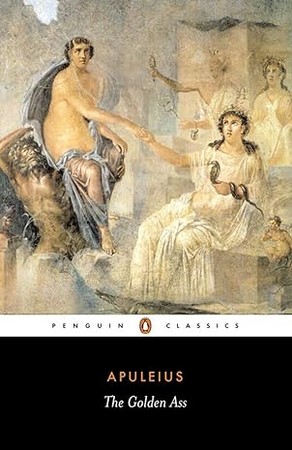
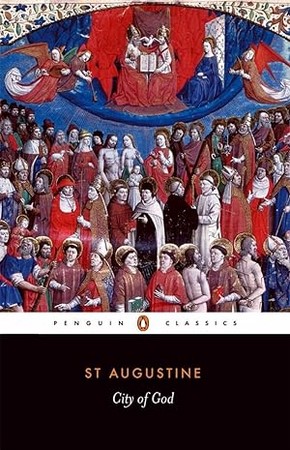
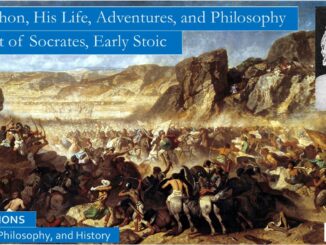
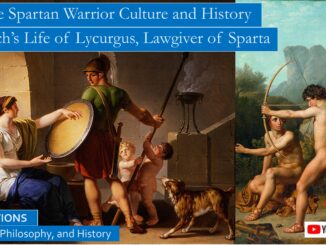
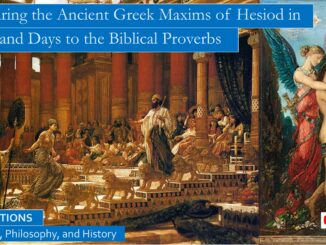
Be the first to comment